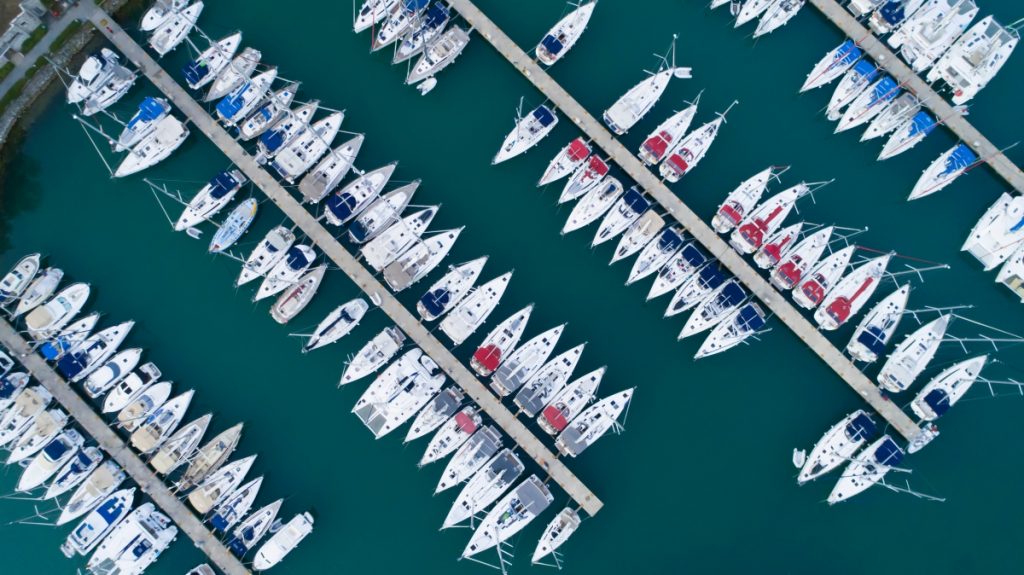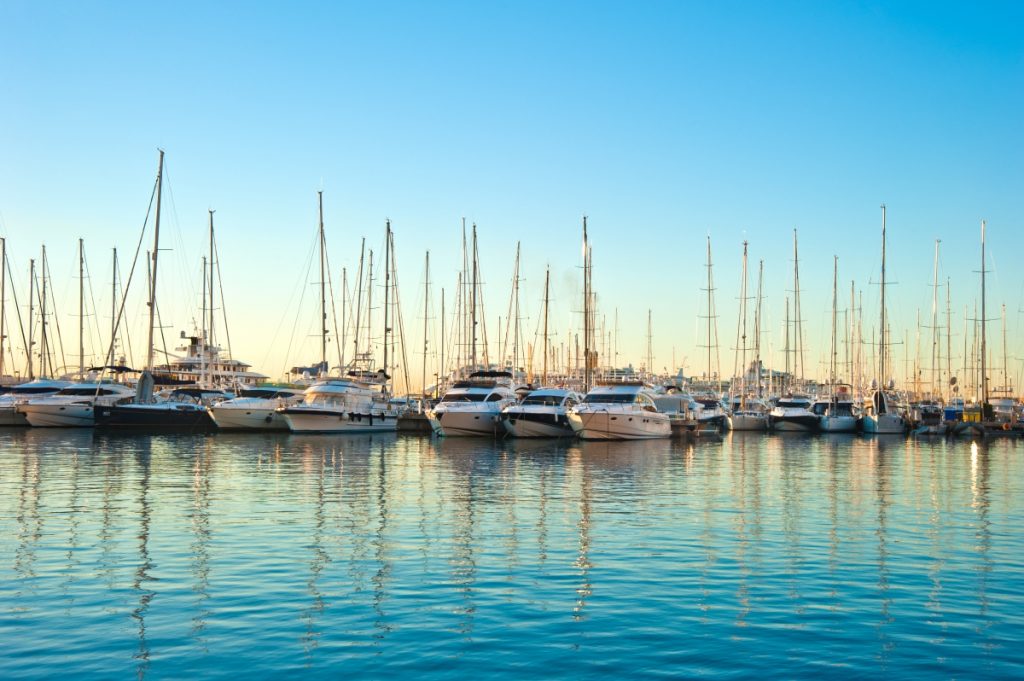Boat Salvage Work in Florida After Hurricane Ian

We hope that everyone made it through hurricane Ian OK.
If you have damage to any of your vessels or equipment from the storm, make sure you have notified your insurer quickly. We know from the past that there are going to be many claims for boat and structural damage from this storm.
This storm reminds us of Hurricane Charley that struck the SW Florida coast in 2004, though Hurricane Ian is considered far bigger than Charley. In 2004 Florida was hit by 4 hurricanes. Charley was first, then Frances, Ivan and Jean. Almost no part of Florida was untouched by one of these 4 hurricanes in 2004.
Those who were in the marine towing and salvage business in 2004 in Florida will remember that boats were stacked on top of each other in marinas and all up and down the Florida coast. We represented several of the salvors who worked to do the cleanup from the 2004 hurricanes. What was true then in 2004 is true now in 2022 to protect yourself if you are going to do boat recovery work. At www.888BOATLAW.com we recommend the following.
1. Get Your Deals Done in Writing.
Judges, looking at al of this devastation in boats, houses, buildings, roads, restaurants, businesses, etc. are not going to have much patience for “he said”—“she said” evidence. If you do not get your deals down in writing and you have to take the insurance company, or a business, or boat owner to court, the judge is not going to look favorably on a swearing contest. Your chances of getting paid go down appreciably if you don’t get your deal in writing from the responsible payor. If you can do it, have the agreement signed by the customer before you commence the work. If you don’t get your agreement signed before starting the work, the insurance company or customer will argue they never agreed to the additional terms you have in your agreement. (like attorney’s fees
Insurance companies can jerk around on smaller claims because they do not believe you will be able to hire an attorney to fight them on a $5000 or even $10,000 job because the cost to hire an attorney to fight the claim by the hour could easily be $10,000. And good luck finding an attorney to take a $5000 or even $10,000 case on contingency. The money is not big enough to litigate a $5000-$10,000 claim for most attorneys who would even know how to fight for you. (Also, there are not many attorneys who know maritime salvage. We do of course.) However, if your written agreement between you and the insurance company, or business, or boat owner contains an attorney fee provision, you have now given yourself a chance to be represented by an attorney in case your customer refuses to pay. Your written agreement simply needs to say: “Payment is due within “xxxx” days after completion of the services provided. In the event collection becomes necessary the cost of collection will be the responsibility of the customer, including for all attorneys’ fees and costs, plus interest.” There are several versions of attorney’s fees provisions, but you need to have one in your written agreement with the customer.
2. Have an Attorney’s Fee Provision in Your Written Agreement.
Insurance companies can jerk around on smaller claims because they do not believe you will be able to hire an attorney to fight them on a $5000 or even $10,000 job because the cost to hire an attorney to fight the claim by the hour could easily be $10,000. And good luck finding an attorney to take a $5000 or even $10,000 case on contingency. The money is not big enough to litigate a $5000-$10,000 claim for most attorneys who would even know how to fight for you. (Also, there are not many attorneys who know maritime salvage. We do of course.) However, if your written agreement between you and the insurance company, or business, or boat owner contains an attorney fee provision, you have now given yourself a chance to be represented by an attorney in case your customer refuses to pay. Your written agreement simply needs to say: “Payment is due within “xxxx” days after completion of the services provided. In the event collection becomes necessary the cost of collection will be the responsibility of the customer, including for all attorneys’ fees and costs, plus interest.” There are several versions of attorney’s fees provisions, but you need to have one in your written agreement with the customer.
3. Don’t Go Through a Middleman.
Maybe some salvors remember that during the 2004 hurricanes, there were middlemen that came in from out of State and got contracts with the insurance companies for removal of sunken and damaged boats. A lot of salvors got shafted out of their money when these middlemen “left town” without paying the salvors who did the actual work. Some of the middlemen hid in bankruptcy court and some just left the State of Florida. We did not hear many of the salvors getting paid for some of the work they did. When you hitch up with a middleman and you have no contract or work order between you and the insurance company you will lose almost every time. The middleman will be gone and the insurance company will tell you they already paid that middleman. Deal direct with the insurance company or customer. Get the insurer, business or customer to sign your written agreement.
4. Think Twice About Arbitration.
Many of the towing and salvage contracts I see have one of two versions of arbitration agreements. There are the contracts which have the customer and salvor agree that all disputes will be handled by arbitration only. The second type of arbitration clause says the customer and the salvor can agree on arbitration if they want to do so but it is not mandatory. We the attorneys here at www.888BOATLAW.com are not big fans of arbitration. Some say it is quicker. That is true. It is typically quicker to a mediocre recovery. Our experience has been that most times an insurer will play games on paying salvage claims if the case has to go to mediation. Why is that? Because the insurers do not have to fear paying thousands of dollars to a maritime defense attorney to litigate the case in court. And in arbitration the insurance company does not worry about what will be uncovered in discovery or by witness testimony; that is because arbitration typically does not allow discovery. Also arbitration can tend to be somewhat seat-of-the-pants rulings where one arbitrator makes a gut feeling type decision, as opposed to a judge who looks at what are all of the legal arguments, the discovery, and the facts in a salvor’s favor. Arbitrations are also pretty much un-appealable. Yes, you can do it. Yes you will fail in it almost 100% of the time. Again, as maritime attorneys for 25 years, we are not big fans of arbitration.
5. You Are Not Likely to Get Pure Salvage on Hurricane Ian Claims.
Pure salvage arises in the maritime context where the vessel is:
- Under marine peril.
- Voluntary service is rendered by a salvor.
- There is success in whole or in part by the salvor.

In those situations that have the 3 elements listed above a salvor could make a claim based upon the worth of the vessel after the salvage has been completed. But, pure salvage claims are not likely at all to be allowed for Hurricane Ian boat retrievals. First, the insurers are going to argue that the vessels—when salvaged—are not in peril because they have already suffered their worst-case scenario. Second, if an insurer or customer failed to pay on a pure salvage, you would be asking a federal judge—who also lived through Hurricane Ian—to award you a recovery based on pure salvage when there are going to be 100’s of boats retrieved. We do not see a federal court judge awarding a pure salvage award when Hurricane Ian caused extensive damage to the entire SW Florida area. We are not saying it is 100% impossible, but based upon our track record of successfully representing maritime salvors for 25 years, it is very unlikely a federal judge will award a pure salvage claim.
We Are Boat Law Attorneys in Florida
Phone: 888-B-O-A-T-L-A-W
Yes, on weekends and holidays.
